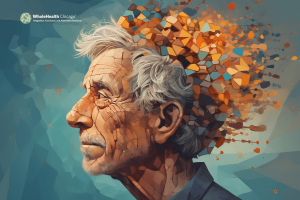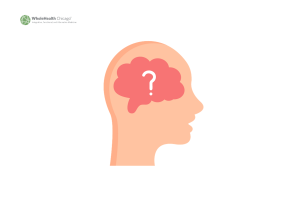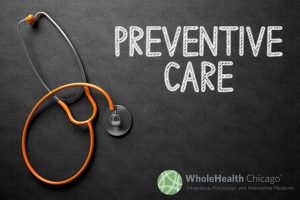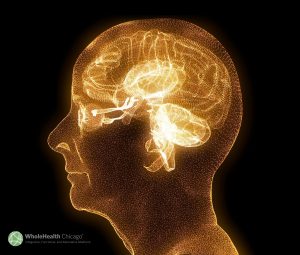Scientists who study the birth of the Universe believe there were only three elements at the very start: Hydrogen, Helium, and Lithium. All three are “everywhere”. Lithium, which means ‘from stone’, is really not a ‘stone’, but rather a very light metal, so light that in pure form, it can float. If you were inclined […]
Tag: alzheimer’s disease
Reversing Cognitive Decline and Preventing Alzheimer’s
You saw a movie last week and in discussing it with friends simply can’t remember the important parts. Plus you just missed another appointment. Planning to drive to a north suburb, you instead got on the southbound expressway and after 15 minutes of Loop traffic realized your error. You’re mixing up words and forgetting too […]
NEWS FOR WOMEN ABOUT A NOBEL PRIZE WINNER, ALZHEIMER’S DISEASE, AND ADD
If you’ve got some spare time, you might want to read two or three articles summarizing the work of Claudia Goldin, the first woman to be a solo winner for the Nobel Prize in Economics. Most involves gender inequalities, especially in marriage and the workplace. The results of which I observe with painful regularity in […]
“I’m Scared. So Many of My Relatives Have Alzheimer’s”
Jeanette, sitting across from me, was genuinely frightened about her future. Yes, she did have several elderly relatives with what she was calling “Alzheimer’s”, but I quickly pointed out that not all causes of dementia are due to Alzheimer’s Disease and much of dementia is both preventable and reversible. I asked what steps she had […]
Colon Cancer, Dementia Prevention, and Your Socks
Sometime in your mid forties, you start thinking of words like “prevention” and “screening”, the “serious stuff” beyond what you thought was reasonable, like getting your teeth cleaned, your eyes examined and, if you have one, having your cervix checked. Also in your forties and female, you enter Mammogram land, no walk in the park […]
Brain Degenerative Diseases Linked To Your Microbiome
The “Big Four” brain diseases frighten everybody, doctors included. Alzheimer’s Disease, Parkinson’s Disease (PD), Amyotrophic Lateral Sclerosis (ALS, a/k/a Lou Gehrig’s Disease), and Multiple Sclerosis (MS). Not one is curable, although we’re doing well these days in the treatment of multiple sclerosis. You might have read last week about a newly released drug for Alzheimer’s […]
“So Many of My Relatives Have Alzheimer’s—I’m Scared.”
Jeanette, sitting across from me, was genuinely frightened about her future. Yes, she did have several elderly relatives with what she was calling “Alzheimer’s”, but I quickly pointed out that not all causes of dementia are due to Alzheimer’s Disease and much of dementia is both preventable and reversible. I asked what steps she had […]
Reversing Mental Decline and Preventing Alzheimer’s
Reversing Mental Decline and Preventing Alzheimer’s, Part 1 You saw a movie last week and in discussing it with friends simply can’t remember the important parts. Plus you just missed another appointment. Planning to drive to a north suburb, you instead got on the southbound expressway and after 15 minutes of Loop traffic realized your […]
Worrisome Dementia Report For Women and Steps To Take
We’ve always known there was a higher rate of Alzheimer’s disease and other dementias in women than in men, initially attributed to the fact that women live longer and that the decline in mental function occurred with age. This turned out to be wrong. At 65, a woman has a greater than one-in-six chance of […]
Could Alzheimer’s Be Prevented By Antibiotics or Antivirals?
Quite some time ago during my internal medicine residency, articles began to appear in medical journals advancing the idea that stomach ulcers might be caused by bacteria. Mainly, I remember how dismissive most gastroenterologists were of this idea. “It is utterly impossible,” said one lecturer, “that any bacteria could survive in the intense acidity of […]
My Memory’s Just Not The Same…Is This Worrisome?
Immediate answer: The newest research shows that your own impression of your memory–not anyone else’s, and not any particular test–could be the very first sign of mental decline as you age. Longer answer: We all have episodes of forgetfulness no matter how old we are. Ask any high school senior confronted with the SAT vocabulary […]
I Think My Mind Is Going
It’s fairly common, actually. You walk into a room suddenly befuddled, wracking your brain, desperate to remember just why you came to this room in the first place. Or you’re telling someone about a movie you just saw the night before, really enjoyed, and now you’re clawing at your cerebral cortex trying to extricate the title, the actor, the name of the theatre.
NADH (Nicotinamide adenine dinucleotide)
Nicotinamide adenine dinucleotide, or NADH, is a coenzyme made from Vitamin B2, or niacin. It’s present in all living cells. As a coenzyme, NADH serves an important role in helping enzymes to function as they should. (An Enzyme is a Protein that works like a catalyst in the body to prompt chemical changes in other substances; breaking down food into energy is an example.) Most coenzymes are synthesized from vitamins, and for optimal energy production, the body needs good amounts of them. The coenzyme, NADH, is no exception.
Huperzine A
For centuries in the Far East, traditional healers have used a rare moss (Huperzia serrata) found in the colder regions of China to remedy fever and Inflammation. Only recently did scientists uncover a remarkable quality in a substance they isolated in the moss. Called huperzine A, the compound appears to have the power to sharpen the mind and potentially ward off the devastating effects of the memory-robbing disease known as Alzheimer’s, particularly in its earliest stages. Huperzine A has also been proposed for countering normal bouts of forgetfulness in the general population.
Zinc/Copper
The minerals zinc and copper can be purchased as single products, but there’s good reason to consider a combination product that pairs the two.
Zinc blocks the absorption and enhances the excretion of copper when taken over time. So, when zinc is recommended long term (over many months) for any condition–from arthritis to prostate problems or even Alzheimer’s–it’s important to get some copper as well. A combination product will help prevent a copper deficiency and the anemia that can develop as a result.
Vitamin E
Scientists identified vitamin E about 80 years ago, but only in the past few decades has its power as an antioxidant been revealed and fully appreciated. What this means is that you’ll have to get far more than the government-established RDA for this vitamin to benefit from its ability to stave off disease and enhance overall health. Unfortunately, most foods containing vitamin E–nuts, vegetable oils and margarine, for example–are high in fat. So to get the protective punch of vitamin E without adding fats to your diet, you need to seriously consider taking supplements.
Vitamin B Complex
A high-quality vitamin B complex supplement will provide, in one convenient pill, a full range of B vitamins, including biotin, choline, folic acid, inositol, PABA (para-aminobenzoic acid), and the six “numbered” B vitamins–vitamin B-1 (thiamin), B-2 (riboflavin), B-3 (niacin), B-5 (pantothenic acid), B-6 (pyridoxine), and B-12 (cobalamin). Combination products can simplify the process of taking individual B vitamins for a range of ailments including alcoholism, depression, diabetes, hair problems, lupus, multiple sclerosis, and stress.
Vinpocetine
Vinpocetine is a derivative of an extract taken from the lesser periwinkle plant (Vinca minor), an evergreen undershrub. The shrub is native to Europe, where it has been been under examination since the 1950s for boosting stroke- and age-related decline in brain function. Only recently has vinpocetine become available in the United States, and not as a prescription drug like in Europe, but as an over-the-counter dietary supplement.
Siberian Ginseng
What Is It? Famed as an energy tonic in China since ancient times, Siberian ginseng only gained recognition in the West in the 1950s, when a Russian scientist (I. I. Brekhman) reported its notable stress-repelling powers. Healthy men and women taking the herb were found to better endure physical strain, resist disease, and perform tests […]
Phosphatidylserine (PS)
Phosphatidylserine (PS) is a phospholipid, a type of fat found in every cell in the body. It is particularly concentrated in the brain, where it has the important task of keeping cell membranes fluid, flexible and primed for nutrient absorption. PS also plays a critical role in supporting nerve tissue; it aids proper release and reception of neurotransmitters in the brain, for example. In short, PS helps to keep memory-related pathways functioning smoothly.






